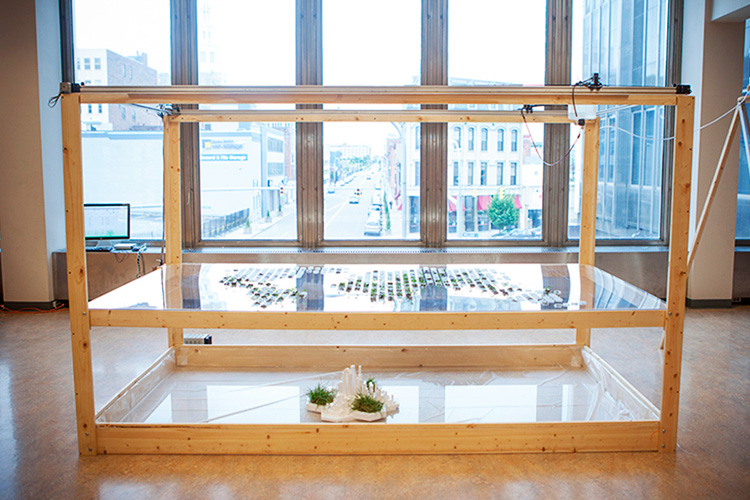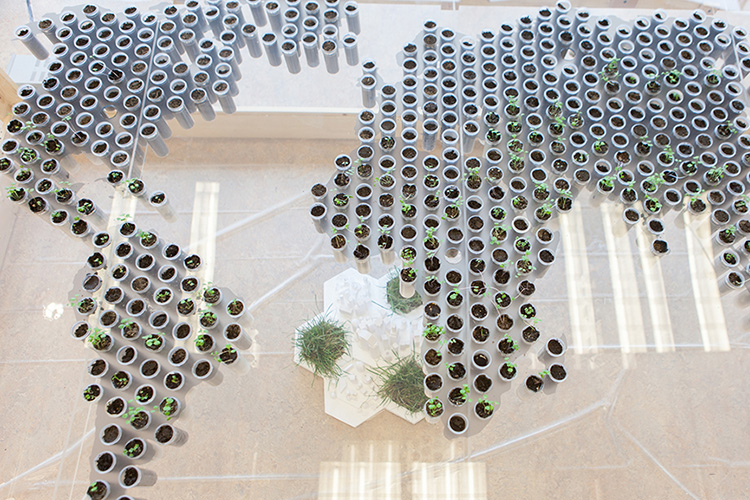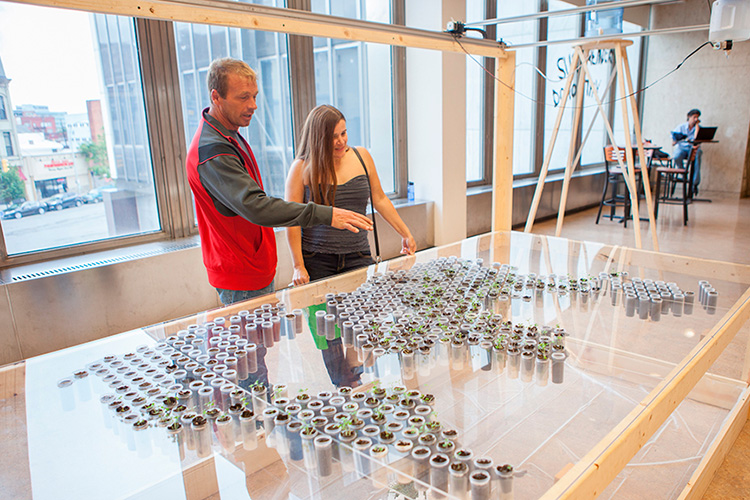videographer: Liz Chow
Garden of Virtual Kinship v2
2014, Stephanie Rothenberg with Brian Larson Clark
Garden of Virtual Kinship v2 "is a telematic garden, both real and virtual, whose lifeline directly correlates to monetary exchanges between the developed and developing world. The project examines the cultural phenomena of online crowdfunded charity, or microfinance, through philanthropic social media websites. These websites enable more affluent individuals primarily located in Western countries to collectively donate small amounts of money to individuals and small communities in extremely economically challenged regions such as East Africa and Central America. The funding is intended to finance small-scale “entrepreneurial” goals. Examples of these pursuits include small retail businesses, local agriculture and farming, transportation and health needs. But contradictions abound within this economic model. What goes unseen are the exorbitant interest rates and fees, borrowers must pay. These can range from 30% up to 60% or higher, and for a loan of only a few hundred dollars. Who profits? It isn’t the lenders with good intentions, but an entire network of banks, starting at the local level and up to multinationals.
This project makes this controversial economic circuit visible. The live garden takes the form of a global map with the plants residing in small containers within a dot matrix grid. Each plant correlates to a borrower on the social media websites requesting funding. An overhead computerized watering system (CNC) is connected to the Internet. The amount of water the plants receive is dependent on investment information data collected from the websites. Successful entrepreneurial ventures trigger appropriate nourishment while failed ventures may lead to dying plants. Yet the plants that do receive water, only receive a few drops.
The goal is to explore the contradictions inherent in this new model of humanitarian activity. Although microfinance websites can help borrowers achieve real material needs and empower them to become successful leaders in their communities, there are disadvantages that are overlooked." (Rothenberg)



